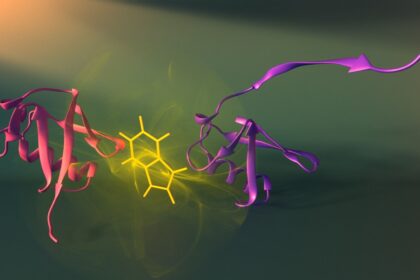Chemistry is not just something that happens in labs or science books. It’s part of everything you do — from the food you eat to the clothes you wear and the tools you use. Over thousands of years, some chemical reactions have completely changed the way people live. They have helped us grow food, build cities, and even talk to each other using computers.
Here are six important chemical changes that made a big difference in human history. These reactions helped shape the world you know today. Each one shows how humans used science to solve problems and make life better — or in some cases, more dangerous.
The First Big Discovery: Fire
Fire was the first chemical reaction people learned to use. It started with something simple like rubbing sticks together or striking stones. Once humans learned to make fire, everything changed. Fire helped you cook food, stay warm, and protect yourself from wild animals.
Cooking with fire didn’t just make food warm. It also helped your body use the food better. Cooked food is easier to chew and digest. This means your body needs less energy to get the nutrients out of it. And with fire, you can enjoy more kinds of food, like roasted meat or baked bread.
Later, a reaction called the Maillard reaction made cooked food even tastier. This reaction happens when sugars and proteins in food mix at high heat. It gives grilled meat a brown crust and makes baked goods smell good. It’s the reason toast tastes different from plain bread. Without this simple reaction, many of your favorite meals wouldn’t exist.
Bronze: The Metal That Built Civilizations
Once people had fire, they started to use it for more than just cooking. They learned how to melt certain rocks and make metals. This gave them better tools, weapons, and building materials. One of the first important metal mixtures was bronze — a mix of copper and tin.
Bronze is stronger than copper by itself. It was used for tools, weapons, and even statues. Making bronze helped early humans farm better, defend their homes, and build strong communities. It started what is now called the Bronze Age — a time when metal changed everyday life.
Without bronze, it would have taken longer for humans to build large cities or travel far. It was one of the first signs that chemistry could change the future, not just daily habits.
Fermentation: A Quiet Revolution
Fermentation is a chemical process where tiny organisms like yeast and bacteria change sugars into alcohol, acids, or gases. You might know it as what helps make bread rise or turns grape juice into wine. But it also made a big difference in history.
Early farmers used fermentation to keep food from going bad. Grains, milk, fruit — all of these could be fermented to last longer and taste better. This helped people store food and stay in one place, rather than always moving to hunt. When you could store food, you could build villages. When you had villages, you had time to think, create, and learn.
Fermented drinks like beer or wine were also safer to drink than dirty water, especially in cities. They helped people avoid getting sick from bacteria. So this simple reaction didn’t just make food tastier. It helped protect your health and build entire civilizations.
Soap: Clean Hands, Healthy Lives
Today, washing your hands is something you do without thinking. But a long time ago, it wasn’t so easy. People didn’t always understand how disease spreads. That started to change with soap.
Soap is made through a reaction called saponification. You mix fats or oils with an alkaline substance, like ash or lye. This breaks the fat into pieces that can grab dirt and oils. One end of the soap molecule sticks to water, and the other sticks to grease. That way, the dirt is lifted off your skin and washed away.
This reaction may sound simple, but it helped save lives. Clean hands and bodies mean fewer diseases. And in crowded cities, that matters a lot. Thanks to soap, people started to live longer, healthier lives — and chemistry was behind it.
Silicon Chips: Powering the Digital World
Silicon is a natural element found in sand and rocks. On its own, it’s not that exciting. But when turned into a pure crystal, it becomes the base of every computer chip you use today — from your phone to your car.
To make chips work, the silicon has to be almost perfect. Scientists developed a method called the Czochralski process to grow big single crystals of silicon. These crystals can be cut into thin slices and turned into chips.
This chemical process powers almost everything digital in your life. It lets you store pictures, send messages, and play games. Without it, computers would be slower, larger, and much less useful.
The Haber Process: Feeding the World
One of the most important reactions in history is the Haber-Bosch process. It combines nitrogen from the air with hydrogen gas to make ammonia. This may sound small, but it made a big difference.
Ammonia is a key ingredient in fertilizers. Fertilizer helps crops grow faster and stronger. Before this process, farmers had to rely on compost or animal waste to feed their plants. That limited how much food they could grow.
Thanks to the Haber process, farmers could grow more food on less land. This helped feed more people and reduce hunger. In fact, the world’s population grew very fast after this discovery. It also led to more stable food supplies in many countries.
However, this same process also made explosives. So like many discoveries, it could be used to help or harm. It depends on how people choose to use it.
Chemistry Continues to Shape the Future
From fire to fertilizer, these six reactions helped humans move forward. They fed growing cities, cleaned dirty hands, and powered machines that connect the world. Some reactions brought comfort, others brought conflict. But each one shows how chemistry is part of your daily life — often in ways you don’t even notice.
The next big discovery could happen in a lab, a garage, or even your kitchen. Just like the reactions of the past, it might change everything — again.




